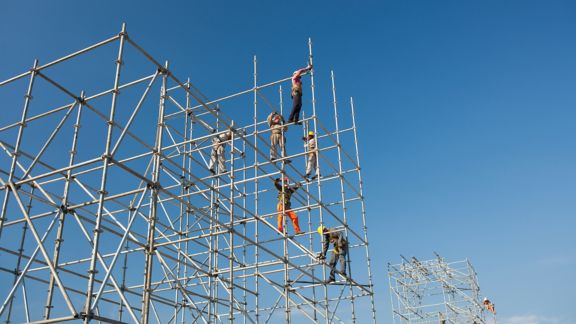California DSS Qualitative Training

Problem
Inconsistent, lengthy county reports hinder CalWORKs’ data analysis, slowing decisions and reducing statewide transparency.
CalWORKs is a cornerstone of California’s safety net in supporting California families on the path to stability and employment. Yet the insights counties generate through CalWORKs County Self-Assessments (Cal-CSAs) and System Improvement Plans (Cal-SIPs) are often buried in lengthy, inconsistent documents. Hundreds of pages of Cal-CSAs and Cal-SIPs produced under the CalWORKs Outcomes and Accountability Review (Cal-OAR) used different terms, uneven metrics, and varied depth—making insights hard to compare while still needing to honor local context and apply an impartial lens. The California Department of Social Services (CDSS) sought to build a standardized, impartial qualitative analysis process for transforming complex, decentralized data into actionable evidence that supports smarter decisions, more consistent services, and better outcomes for families navigating poverty, child care gaps, and other systemic barriers.
Solution
NORC is helping CDSS build a sustainable pipeline to analyze CalWORKs data and translate insights into SMART goals.
NORC co-designed with CDSS a rigorous yet practical, reproducible workflow. We aligned on core questions and a shared taxonomy, built a codebook, piloted on a representative county set to establish inter-rater reliability, and created normalization rules and a crosswalk linking qualitative themes to performance indicators. We stood up a searchable repository with metadata, used lightweight natural language processing for document triage (with humans in the loop), and instituted quality controls, plain-language templates, and standard operating procedures. We paired this with hands-on training, coaching, exemplary analyses, and change-management support for county outreach so CDSS could run the process in-house.
What made this approach distinctive was balancing scientific rigor with day-one usability—harmonizing disparate documents without flattening nuance, embedding impartiality from the start, and producing outputs that directly inform specific, measurable, achievable, relevant, and time-bound (SMART) goal-setting and cross-county learning.
This approach prepares CDSS for responsible future use of generative artificial intelligence (AI) by creating labeled corpora, standardized taxonomies, governance protocols, and human-in-the-loop quality checks that enable safe, effective AI-assisted synthesis and pattern detection.
Result
CDSS will have a set of tools and data to address critical questions about the provision of CalWORKS in the state.
CDSS gains durable capacity to translate assessments into SMART goals and make apples-to-apples comparisons statewide, aligned with Cal-OAR. Counties receive practical guidance. Transparency and consistency improve. Over time, the approach reduces redundancy, speeds uptake of effective strategies, and strengthens CalWORKs’ service delivery and outcomes for families.
Related Tags
Project Leads
-
Robert M. Goerge
Senior FellowProject Director -
Brandon Sepulvado
Senior Research MethodologistChief Methodologist -
Emily R. Wiegand
Senior Research MethodologistSenior Staff










